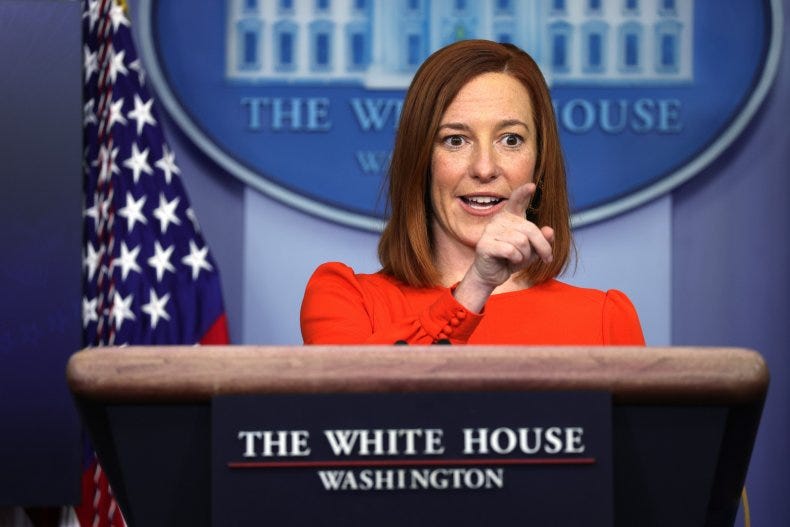Speaking in a Personal Capacity
White House Messaging on the Vaccination of Teachers Illustrates the Complexities of Scientific Advice and Policymaking
Yesterday, Dr. Rochelle Walensky, the director of the Centers for Disease Control and Prevention, made headlines when she told reporters from the White House podium, “There is increasing data to suggest that schools can safely reopen and that safe reopening does not suggest that teachers need to be vaccinated. Vaccinations of teachers is not a prerequisite for safely reopening schools.”
The issue of a full return to classroom teaching is highly charged, with many teacher’s unions demanding that teachers’ be vaccinated before returning to in-person instruction. The issue is further complicated politically because leading teacher’s unions endorsed Joe Biden in the 2020 election.
It was thus not at all surprising that today, White House press secretary Jen Psaki appeared to walk back the CDC director’s comments, explaining that CDC has not released its final guidance and that “Dr. Walensky spoke to this in her personal capacity.”
Both Dr. Walensky’s and press secretary Psaki’s comments reflect significant missteps for a Biden Administration whose first several weeks in office have been characterized by transparency and competency. The missteps reflect some of the complexities at play in science and politics. Let’s look at the details.
Dr. Walensky is undeniably an accomplished scientist and physician, and is no doubt perfectly able to render an expert judgment on the scientific literature involving COVID-19 and school safety. But at the same time she is also a political appointee of the Biden Administration and thus a policy maker, or at least the official face of policies made by CDC.
So when she states, from the White House podium — “Vaccinations of teachers is not a prerequisite for safely reopening schools” — this is not merely her well-informed view, it is also an expression of an official policy of the Biden Administration. Dr. Walensky appears to have pre-empted the official CDC process for making a recommendation on this issue. Psaki explained that CDC “haven’t issued their final guidance, and we, of course, wait for that process to complete and see its way through.”
That process involves receiving a recommendation from the relevant expert advisors to CDC and then consideration and deliberation of that recommendation by CDC’s career officials and political appointees. By expressing a view on the proper policy for the vaccination of teachers, Dr. Walensky has created risks for the process.
If on the one hand the process legitimately arrives at the same conclusion as Dr. Walansky has expressed, critics could charge that the advisory process was pre-judged and politicized. If, on the other hand, the process results in recommendations counter to those expressed by Dr. Walensky, then critics could charge that the advisory process succumb to political pressures from teachers unions, discarding the recommendation of the CDC director.
It’s a no-win situation.
As an expert and a political appointee leading CDC, Dr. Walensky will have every opportunity to consider, challenge and ultimately accept or reject the advice that she receives. She should, however, refrain from engaging that opportunity from the White House podium and allow the process to play out as it is designed.
For Press Secretary Psaki, the explanation that Dr. Walensky was speaking in her “personal capacity” from the White House podium was unfortunate. Not only does it echo similar explanations offered by the Trump Administration for communications snafus, but it is a bad precedent. I get what Psaki was trying to explain, but it did not come off well.
This will not be the last such issue for the Biden Administration — the appointment of so many competent experts in political positions means that there will be some degree of learning-on-the-job as distinctions between leadership and expertise are clarified. Scientific advisory processes are important for exactly these reasons — they help to protect the legitimacy of expertise in decision making, and to clarify that democratic accountability lies with those who ultimately make decisions.




